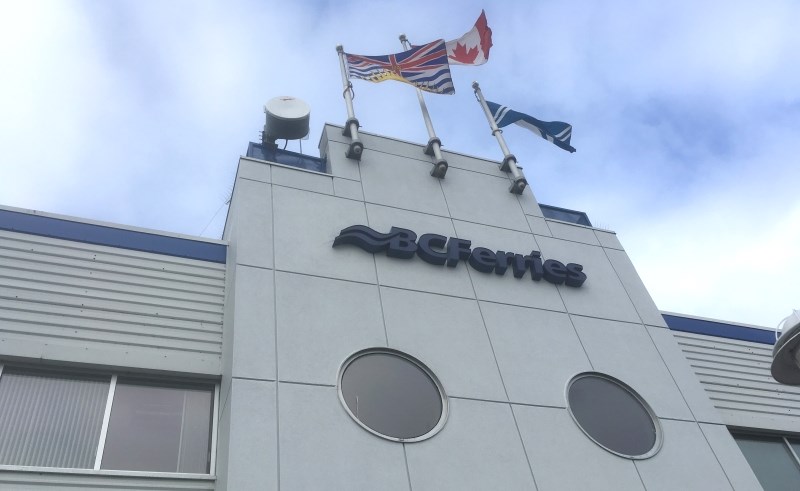B.C. Ferries has filed with the B.C. Ferry Commission the largest capital plan in its history, according to the corporation’s financial results released Wednesday.
The capital plan, which covers projected spending between 2019 and 2030, was one of five reports included in the corporation’s “Performance Term Five Submission” filed at the end of September.
The plan says B.C. Ferries is in a solid financial position, and outlines intentions to invest more than $3.9 billion in upgrading the fleet and terminals, introducing alternative energy sources and investing in its fleet maintenance facility.
“Our capital plan will help to ensure a sustainable, future-ready, efficient marine transportation system, while delivering an exceptional and affordable customer-focused travel experience,” said B.C. Ferries chief executive Mark Collins. “In developing our plan, we recognize that decisions we make today must consider the way people will travel tomorrow.”
Collins said the plan would take into account the energy transition to a lower carbon future, while addressing concerns around reliability, affordability and choice.
The submission of the five reports, including a traffic demand forecast and strategy for enhancing efficiency, is designed to help the B.C. Ferry Commission establish fare price caps for all B.C. Ferries routes.
Pricing played a role in B.C. Ferries’ most recent financial results. Reduced fares, more sailings and new initiatives cut into B.C. Ferries’ profits during the second quarter of this year according to the financial results.
B.C. Ferries earned $90.9 million in the second quarter, ended Sept. 30, a drop of $8 million from the second quarter last year. Year-to-date, it had a profit of $96.9 million, down from $115.7 million earned through September last year.
“To provide our customers with the service they expect from B.C. Ferries, we added sailings where possible on a variety of routes and extended schedules to meet demand,” said Collins, noting the corporation added 288 (640 year-to-date) additional round trips compared to the same time last year.
Revenue was also affected by a fare reduction of 15 per cent on all but the three Vancouver-to-Vancouver Island routes, where fares were held constant.
In addition the B.C. seniors’ passenger discount was increased from 50 per cent to 100 per cent for travel Monday to Thursday.
Operating expenses increased by $13.9 million to $211.2 million during the quarter, as a result of additional sailings, schedule adjustments, and introduction of a new direct route between Port Hardy and Bella Coola. Revenue was up compared to the second quarter of 2017, increasing $5.8 million to $315.8 million, the result of increased traffic and the increase in ferry service fees related to the fare initiatives.
B.C. Ferries had capital expenditures of $126.8 million on refits, new vessels and terminal work.



